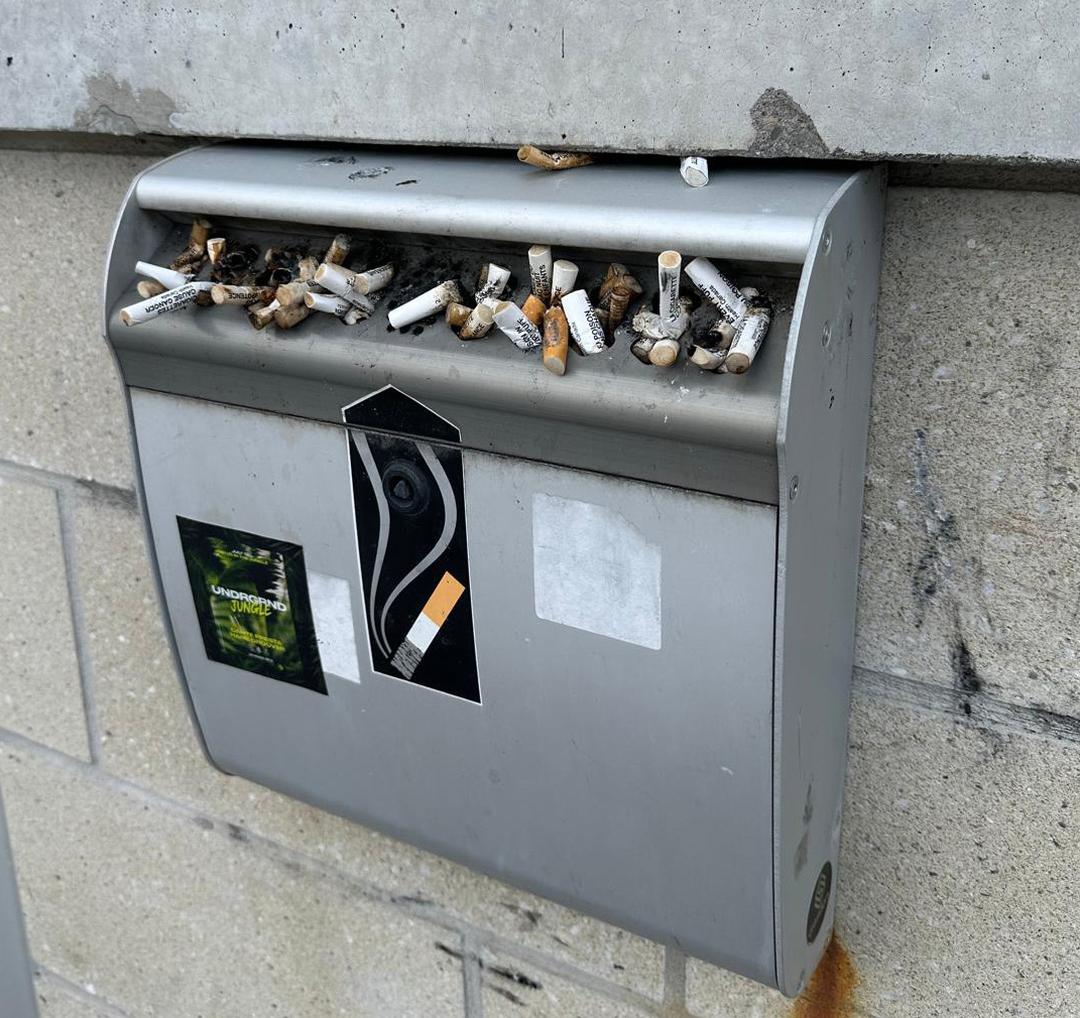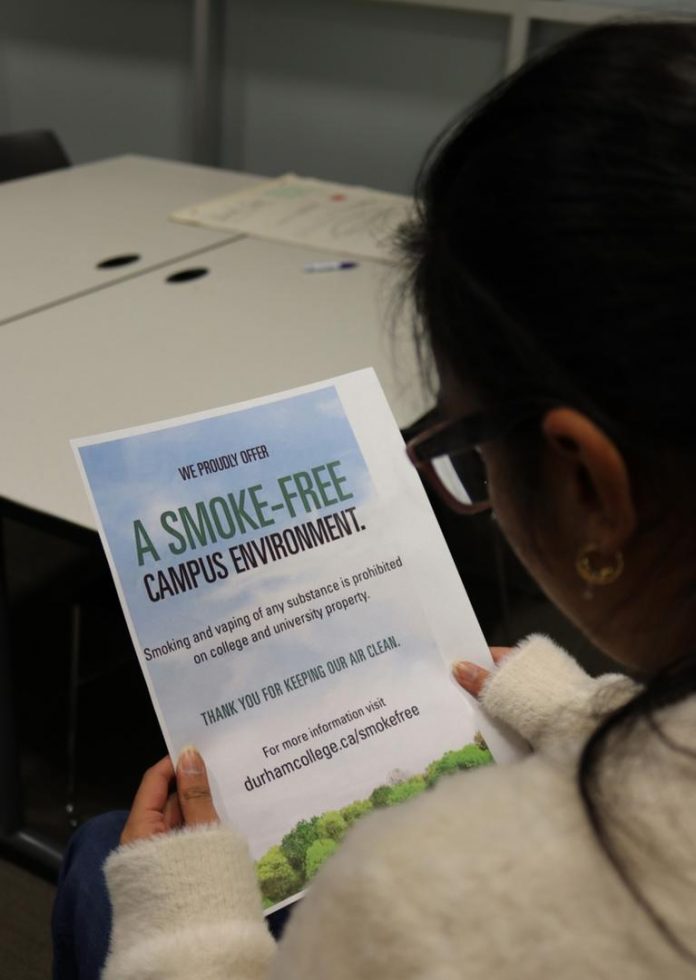Since the implementation of the smoke-free policy in 2018, Durham College has aimed to reduce the environmental impact of tobacco waste on its campus.
This initiative prohibits smoking on all college property, addressing a growing concern regarding the litter produced by cigarette butts and vaping devices. Despite these efforts, challenges remain in fully achieving a clean and sustainable campus environment.
Isabel Savransky, an asset and sustainability planner at Oshawa’s Ontario Tech University, which shares campus facilities with Durham College, acknowledged the ongoing issue of tobacco-related waste.
“Cigarette butts are made of plastic, and as they break down, they contribute to microplastics in our waterways, harming wildlife and polluting the environment,” she said. Savransky emphasized that this pollution extends beyond the immediate campus, impacting broader ecological systems.

According to a report from the National Library of Medicine, cigarette butts are the most common form of litter in Canada, with approximately 4.5 trillion collected annually. This highlights the significance of enforcing the smoke-free policy as a means of reducing not only on-campus litter but also the negative environmental consequences associated with tobacco waste.
The smoke-free initiative at Durham College is not an isolated effort; many educational institutions across Ontario have adopted similar policies.
These include George Brown College, Humber College and McMaster University, reflecting a provincewide commitment to promoting healthier environments for students and staff. The increase in the number of smoke-free campuses aligns with a broader public health goal of reducing smoking rates, especially among young adults.
While the college has implemented various strategies to ensure compliance with the policy, challenges still exist. Savransky points out that there are still areas on campus where smoking occurs, indicating a need for increased awareness and enforcement.
“We’ve hosted campus cleanup events specifically targeting cigarette waste, and we’re working on improving signage and educational components,” she explained.
The college and university have also engaged in waste audits to assess the impact of the smoke-free policy. In a recent audit, it was revealed that 20 per cent of the university’s waste consisted of paper towels, with cigarette butts noticeably absent from the findings. This data underscores the potential for further waste reduction efforts on campus.
Efforts to combat cigarette litter have included collaborations with student organizations to promote awareness and proper disposal methods.
Savransky highlighted the importance of education: “We need to ensure that students are aware of the policy and understand the consequences of littering.” she said. “Engaging them through campaigns and events can foster a sense of accountability.”
Despite the challenges, Savransky is optimistic about the future.
“Our goal is to create a cleaner, healthier environment. While we have room for improvement, I believe that ongoing education and awareness campaigns will contribute to a gradual decline in tobacco litter on campus,” she said.
The long-term vision for Durham College and Ontario Tech is aligned with sustainability goals that encompass waste reduction and environmental stewardship.
“By aiming for a net-zero campus by 2050, we are committed to reducing our overall waste and promoting sustainable practices among students,” Savransky added.
As the college and the university continue to enforce the smoke-free policy, it remains crucial to evaluate its effectiveness and make necessary adjustments.
By fostering a culture of sustainability and responsibility among students, both institutions are taking significant steps toward achieving a cleaner and more eco-friendly campus.




